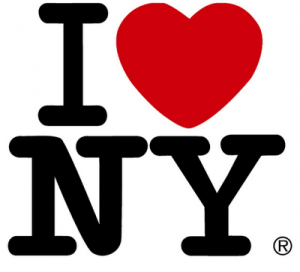[polldaddy poll=2561470]
The Tantrum: Do Children Belong in Bars, Part 4
 First, to the “5-foot-4, dark-haired Jewish girl in her early 20s” who wrote this brilliant Times article on baby-drinking in Park Slope: come on, my fine little journo-Jewess, don’t you think you’re being ein bissel ayngeleybt in zikh (take that, Crown Heights!).
First, to the “5-foot-4, dark-haired Jewish girl in her early 20s” who wrote this brilliant Times article on baby-drinking in Park Slope: come on, my fine little journo-Jewess, don’t you think you’re being ein bissel ayngeleybt in zikh (take that, Crown Heights!).
I mean, really, why does it have to be all about you? What about all those fair-haired, blue-eyed, lederhosen-clad goyim in the bar looking to score with some of their pure-blooded brethren? Wouldn’t your Jewy-ness fuck with their game? Seriously. How can a Nazi, in good conscience, get laid in a bar in Park Slope if Risa Fucking Chubinsky is there? Can a Nazi not get a little love in this town?
Another quibble: I don’t like the term breeder, particularly when used by the barren and forlorn.
When talking about me, Fraulein Chubinsky, the term d’art is “Can Breeder.” As in, I can do it, can you? (I like to do it, as well, sometimes just for practice not procreation; my girlfriend tells me I’m getting quite good at it).
But seriously, folks. What in the world is all the hullabaloo about? We’re not talking about making babies while at the bar, are we? Nor are we talking about killing them. Just drinking in their vicinity.
The whole debate is so hopelessly parochial I can’t believe New Yorkers insist on dragging it up every few months. I thought we’re all supposed to be freegan-loving, dumpster-diving, carbon-emission-denying, non-traditional-family-unit-accepting, wonder-progressives! And if we’re not, shouldn’t we keep it to ourselves? The Mississippians have ears, folks!
How now, Risa?
The Great Eighth Avenue Paywall

OK, so we write a lot of posts that link to the New York Times. The articles produced by the fine journalists there are a source of inspiration, frustration and everything in between. Our reliance on the Grey Lady would qualify as a dirty secret of sorts, if it weren’t for the fact that we are totally ratted out by our handy Word Cloud on the right of this page. Look for yourself: the New York Times is our most used keyword, just ahead of The Tantrum and Bad Dad.
Naturally, then, we were interested in the news today that the New York Times is erecting a paywall of some sort, for frequent users, in 2011.
This presents a couple problems for us, of course. Primarily, we won’t know which of our readers are frequent enough nytimes.com readers that they would have to pay to see a story we’d click on. So we’ll be much less inclined to link to them. We’ll link to alternatives that we know you guys will be able to read for free. And yes, there are alternative versions, in other publications, of many of the stories the Times does.
That’s the problem with being the New York Times. The scope of the paper each day is impressive, but many of the individual articles are replaceable. Take my recent post, which launched off a New York Times article about more men marrying wealthier women. I linked to the Times piece because it was convenient, well-written, and–because it was a New York Times trend story–slightly fun to mock. But the study that the article was reporting on? That was from the Pew Center, based a little survey called the US Census. And I could have just as easily linked to an article on the same report from Australia’s The Age, the LA Times or even a (free) blog at the Wall Street Journal.
As Reuters’ Felix Salmon points out, there’s not much word on what will happen to the Times’ blogs. Hopefully they will remain somewhere outside of the wall. We have previously expressed our affection for the Motherlode blog there; we’d hate to have those and other conversations silenced.
There’s plenty of regular Times content you’re just not going to find anywhere else, and it’s damned good (the work of a certain DadWagoner who likes getting his traveler frugaled comes to mind). I have also written for the Times, and I wish them luck in making more money. Perhaps then they can pay more money. But if linking to them means frustrating our readers, then I, for one, will start linking to their many free competitors.
Around the way girl

I would be remiss not to mention another decision reached in Massachusetts this week, one that was not at all moronic: at the midwinter American Library Association conference in Boston, the biggest prize in children’s literature, the John Newberry Medal, was awarded to Rebecca Stead for her book When You Reach Me.
With a deep bench of books I no longer have time to read by authors like Roberto Bolaño and the like, I suppose I shouldn’t feel bad about not having read this book yet. But Motoko Rich’s profile of the author and her work makes me want to rearrange the shelving a bit. Because Stead isn’t just a writer who lives in New York. She writes New York, and she’s actually from New York. Her story takes place in 1979 in my adopted neighborhood, the Upper West Side. The characters are those from her childhood, the school in the book much like her own P.S. 75 on 96th and West End Avenue.
In Manhattan these days, you’re about as likely to find a Leprechaun as a native New Yorker, but I am a complete sucker for stories of growing up in this neighborhood back in the day.
My mother and uncle lived here for a while when they were very young, because my grandfather was preaching at The Riverside Church (a godly posting that led, memorably, to a more recent evening a few years ago, with my uncle careening in his car down Houston Street, flipping off the cabbies and yelling out the window, “Fuck You! I was born in Manhattan!” I do miss the guy.)
I know I shouldn’t romanticize the way this neighborhood used to be. I know that twenty years ago those multimillion-dollar brownstones were as abandoned and forlorn as anything you’d find in the grotted heart of Baltimore. I know that King Curtis was stabbed in the heart on his stoop, just a few doors down from where I catch the subway.
It’s also true that more recent flood of stockbrokers into the Upper West Side didn’t just wash the blood off the sidewalks; it also washed away all the artists, punks, pushers and poets. But still I look at women like Rebecca Stead–authors, mothers, New Yorkers–and I think we’re making the right decision to stay. I think there’s a lot of good that can come for my daughter, right here in our neighborhood.
As my uncle would say: Fuck you. She was born in Manhattan.
